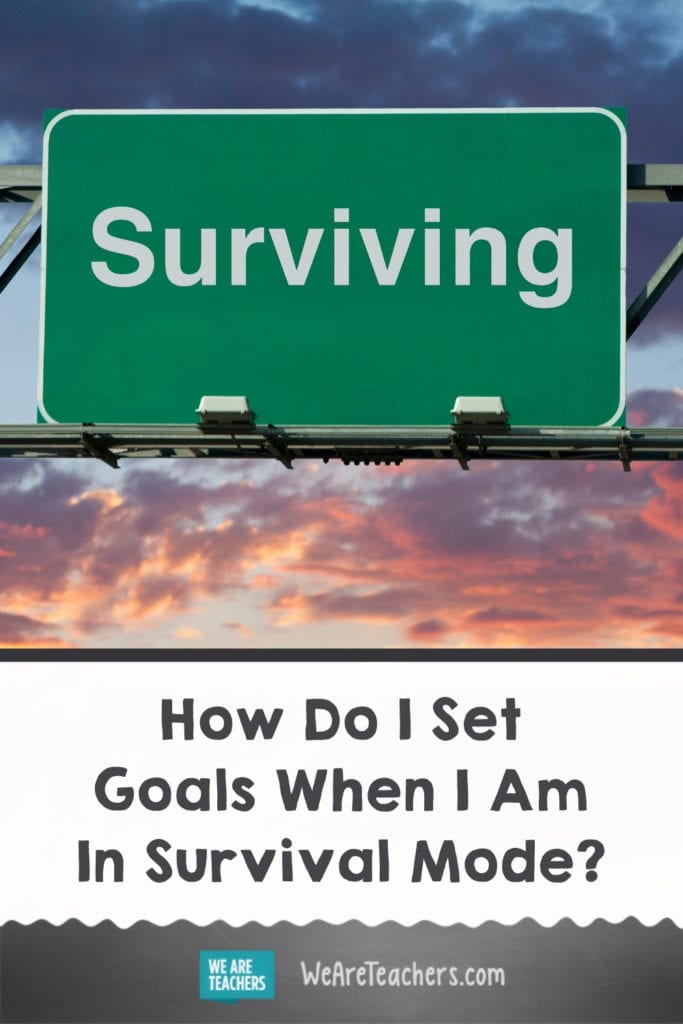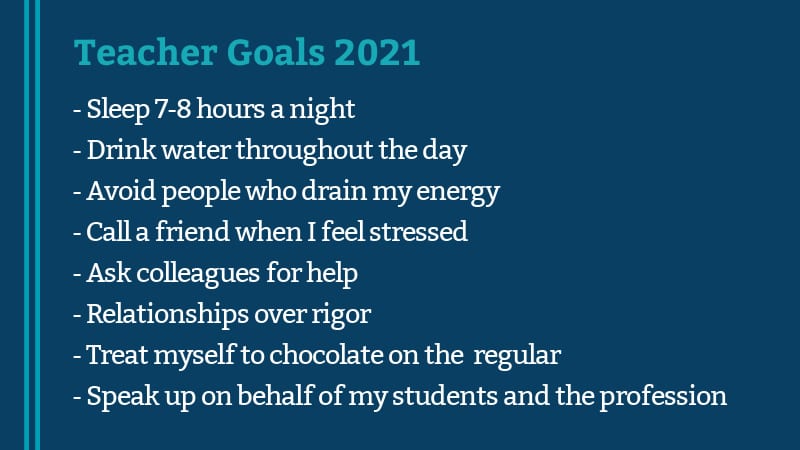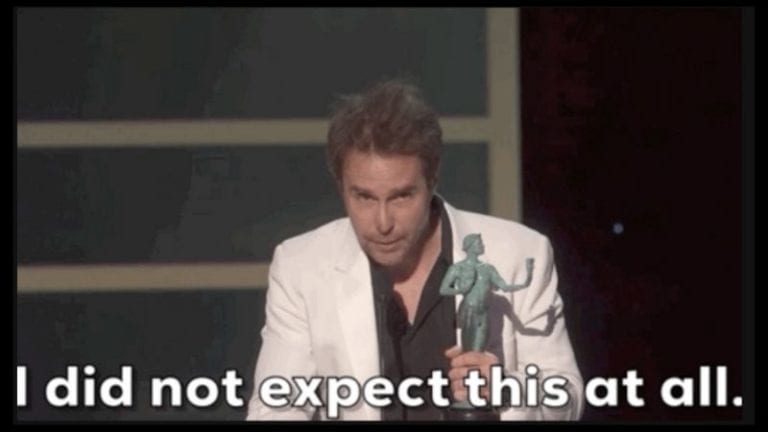Setting goals for our professional growth is part of the job (yes, teacher evaluations are still happening in many states, even this year), but how do we set goals when we are teaching during a pandemic and in full-on survival mode? Will our admin be disappointed when they read, “make it through the year without quitting?” Because if we are honest, the idea of getting better at teaching (or anything) feels impossible. So instead of setting goals the way we have always have, let’s try a different approach. Here’s how to set goals when you are in survival mode.
Instead of “I will improve,” try “I will feel”
I know. What?!? For so many of us, our achievements define our success. Our productivity defines our worth. When we think about our teaching, we look out instead of in. Here’s the thing about this profession: there is so much to learn, and be, and figure out, and do that you could spend your entire lifetime “improving” your teaching and still feel like you have more to improve on. So let’s flip the switch. Let’s set goals for how we want to be as teachers instead of what we want to achieve.
Your goal might look like:
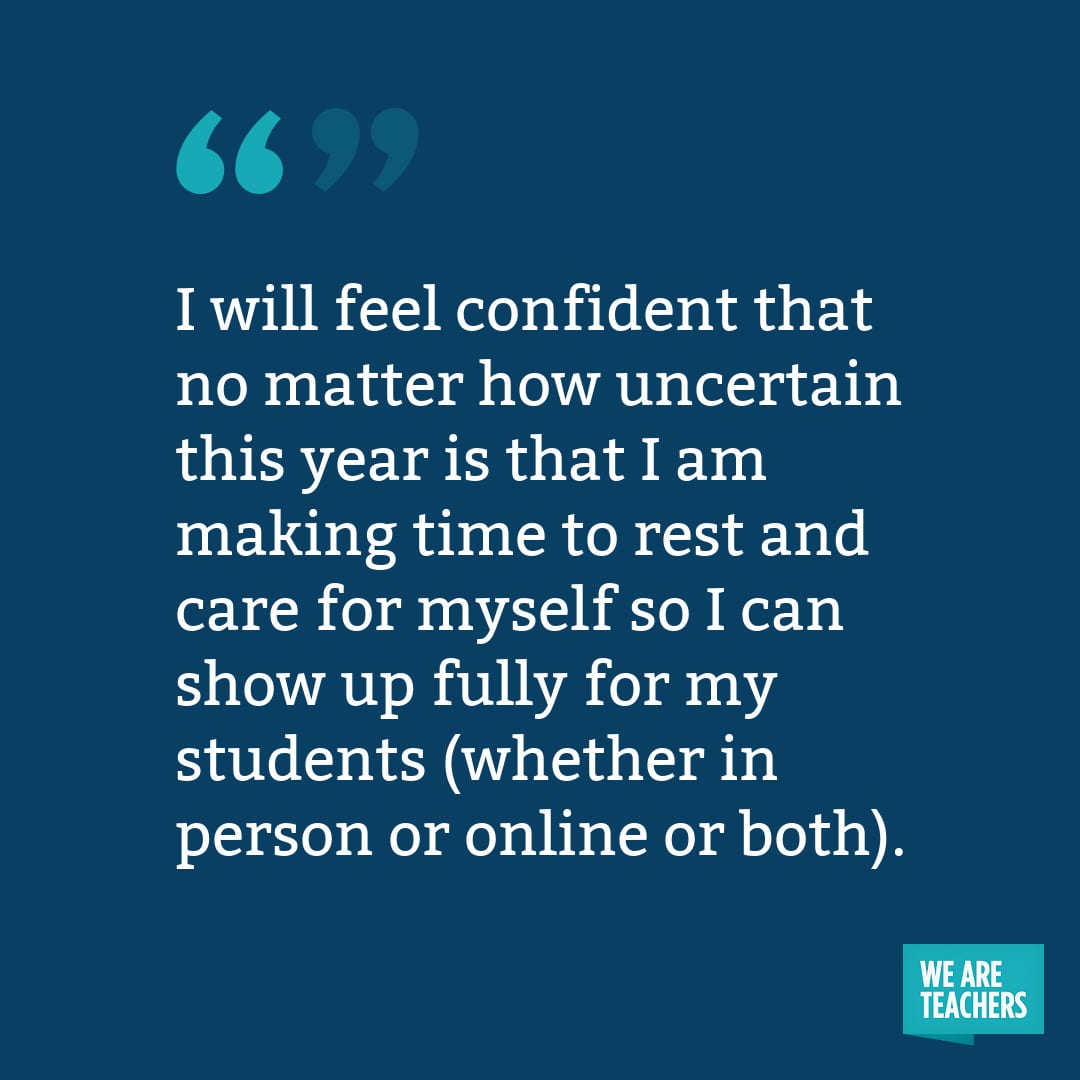
Instead of writing SMART goals, try making a list of practices and habits
If you swear by the SMART method, I get it. There’s a lot to be said about making your goals specific, measurable, attainable, relevant, and time-bound. But this year, it just doesn’t make sense, especially the time-bound part. There is so much out of our control (many schools are in a cycle of going in person, going remote, and back again). We cannot control our circumstances, but we can control how we respond to them. That’s why making a list of practices or habits feels better this year.
Your goal might look like
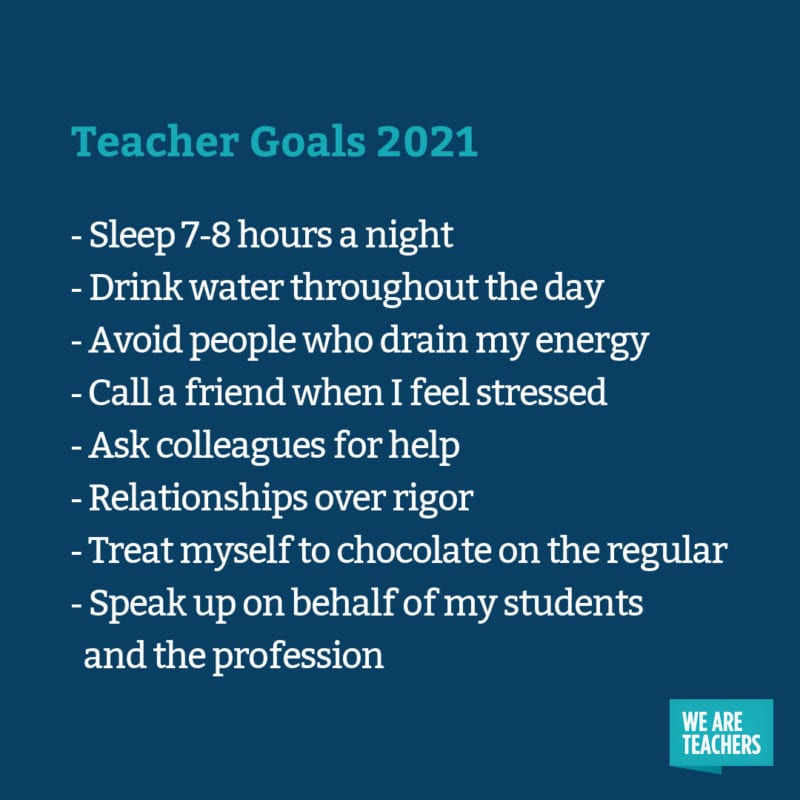
Instead of “this is what my admin wants my goal to be,” try “this is the goal that I care about”
Confession: there were years where I was up against the professional goals’ deadline at my school, and I wrote down something that I knew my admin would like to see and didn’t really put much thought into what I cared about. Big mistake. I ended up spending a lot of time and energy learning about new technology when I really wanted to create a new reading list for my seventh graders. So anytime I worked on my “professional growth” all I was doing was building resentment. This year we are tired and scared, and it feels like all of our nerves are on the outside of our bodies. Don’t set a goal for anything unless you truly believe that it matters to you and your students. Goals still matter even if they have nothing to do with standards or instructional models.
Your goal might look like:
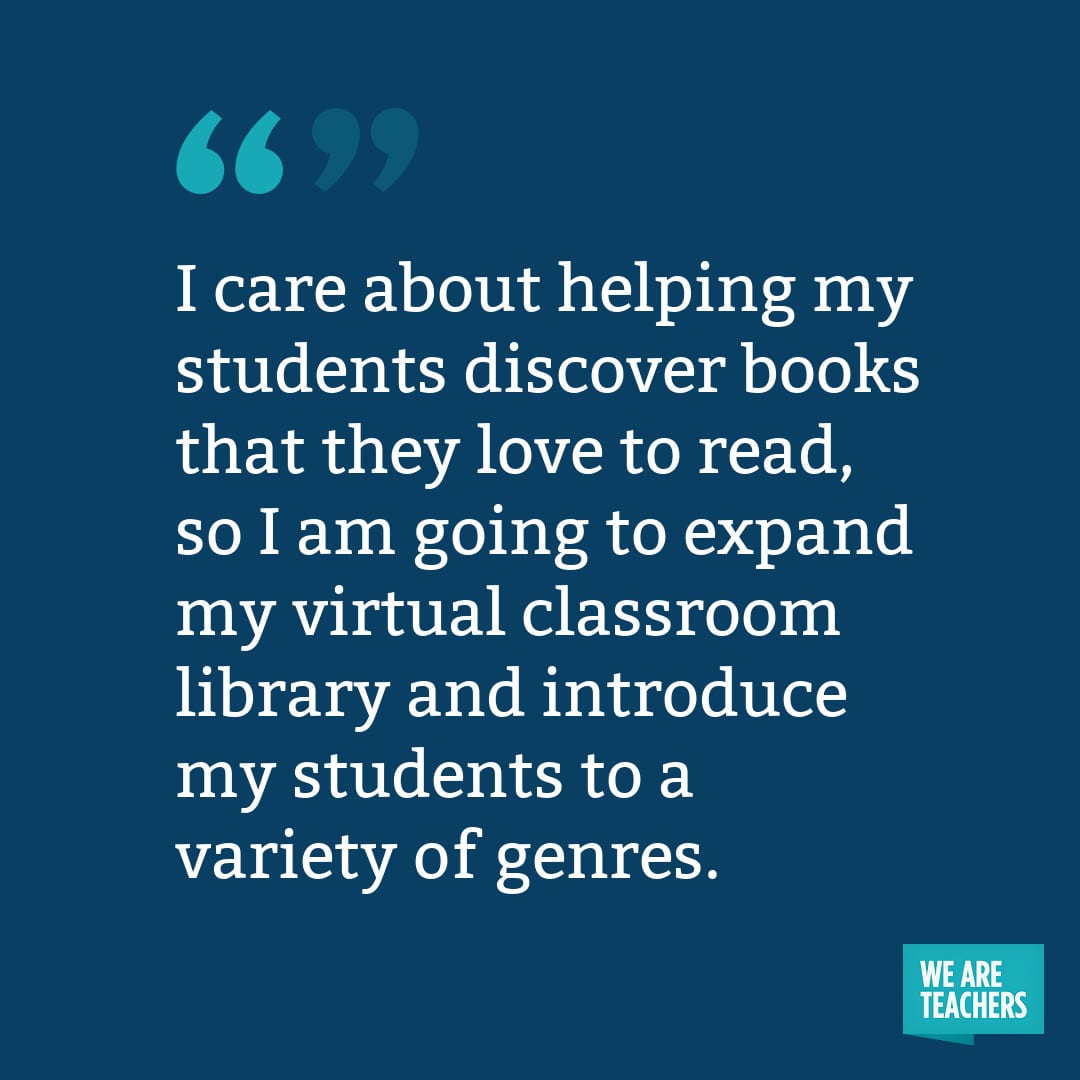
Instead of, “This year I will,” try, “As years progress, I hope”
This one came from Tanya, a first-year teacher who shared in our WeAreTeachers First Years! Group on Facebook . I wish someone suggested this to me when I was teaching! If there is anything that we need to be reminded of this year, in particular, it’s that we have many years of teaching ahead of us. Because there’s so much uncertainty this year, it feels right to set a goal that we care about and want to work on, while also making it clear that we are going to keep working on it throughout our teaching career. And yes, I know: how will we show we met our goal? The answer is we won’t. Process over product, teacher friends.
Your goal might look like:
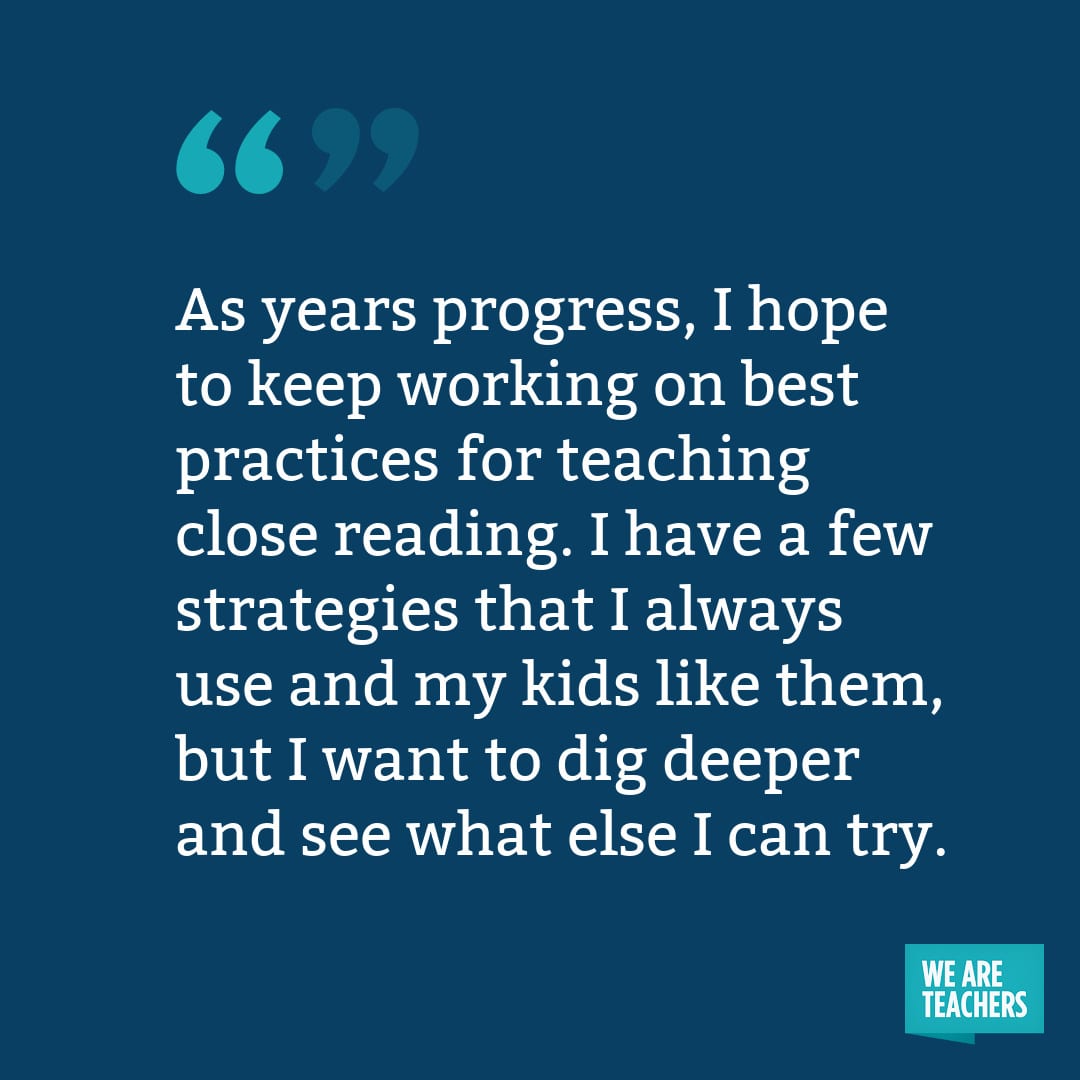
Instead of, “I am not good at X, so I better set a goal for X,” try “I am good at Y, and I want to keep working at Y.”
I promise this one doesn’t involve doing any math (you’re welcome, English teachers!). We are really hard on ourselves. Too often, we focus on what we don’t know or aren’t good at rather than what we love and are great at. I coach a first-year teacher who told me, “ I’m bad at classroom management, so I guess we need to work on that,” and my response was, “Do you want to work on that? Because, if you don’t want to work on something, you aren’t going to.” Motivation and drive are at an all-time low this year. We are so tired we can barely manage to shower, let alone become “good” at classroom management. So this year, let’s set a goal to keep going with something we love or are doing well. No motivation required.
Your goal might look like:
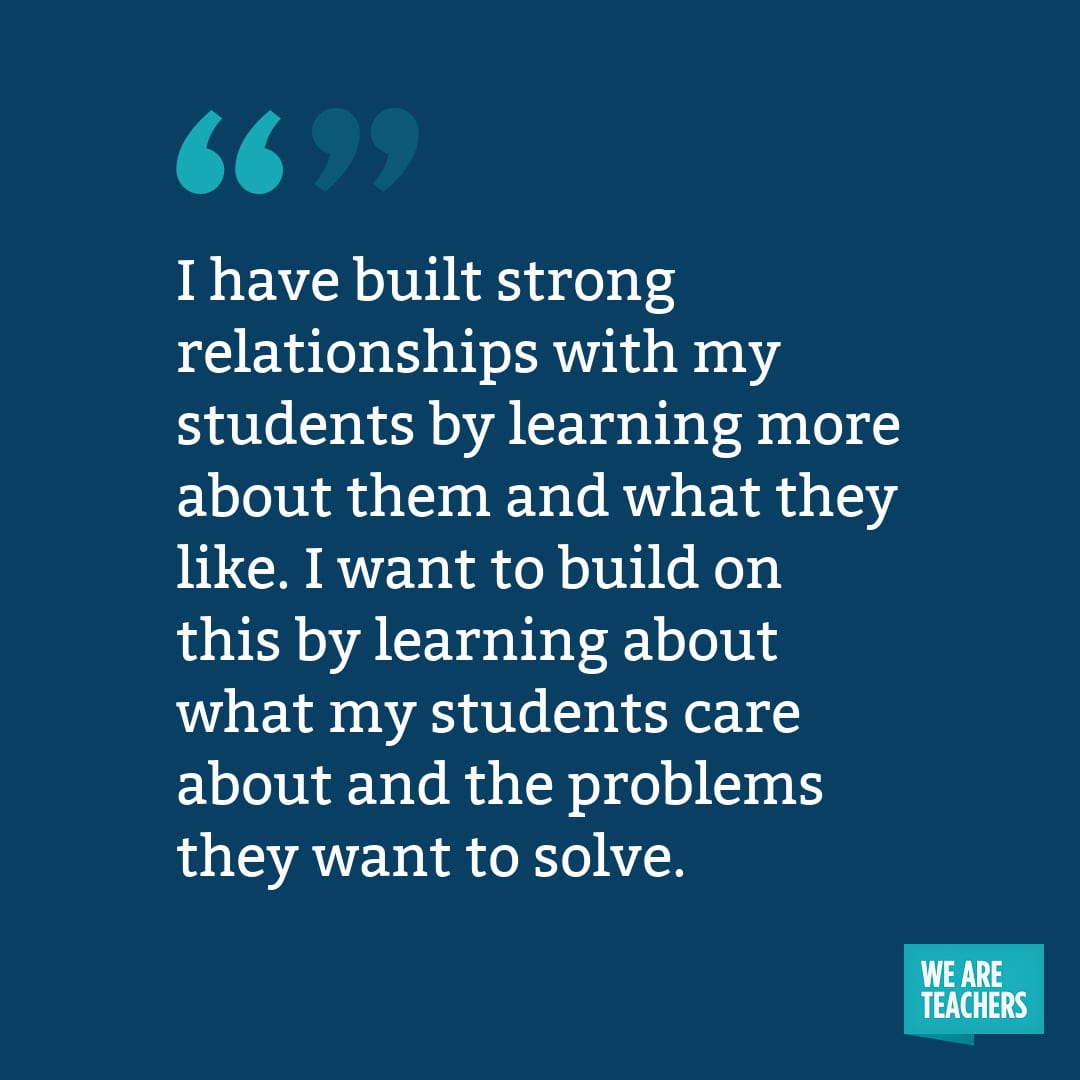
Instead of academic goals, try SEL goals
Nothing made me happier when you started sharing that many of your districts are encouraging you to focus on SEL goals for your students. Maslow before Bloom! I love Kelly, a teacher in our WeAreTeachers HELPLINE Facebook group, who shared, “I would recommend setting goals around building relationships and SEL. These are supported by research and more important than ever. This way, you can focus on the whole student and their needs during this time.” I couldn’t agree more. Yes, our students need to learn how to identify the main idea and do long division, but this year, teaching them how to handle stress and manage their fears feels more goal worthy.
Your goal might look like:
We love this goal that Victoria, a teacher in our Facebook group, shared:
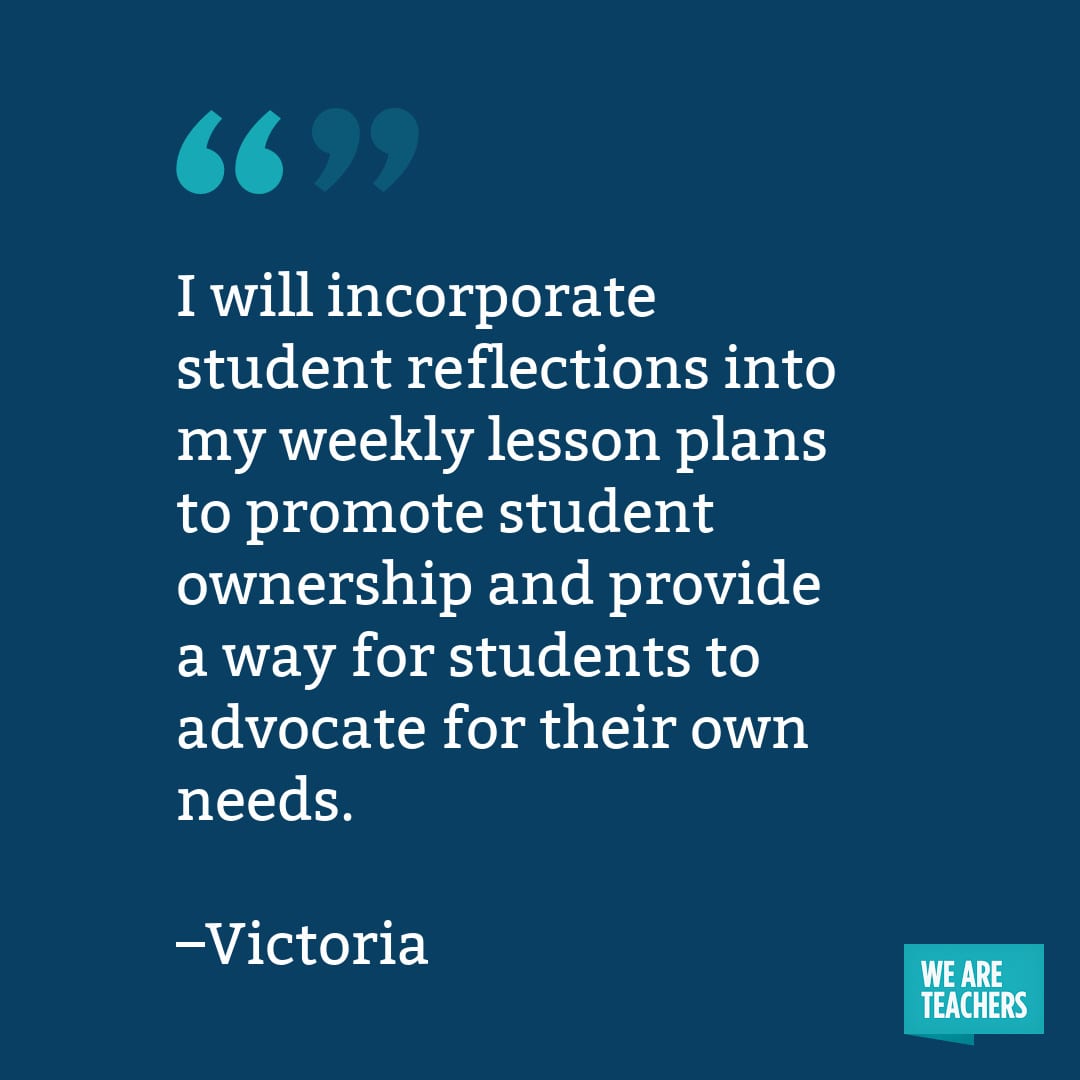
How are you setting goals this year? Share in the comments below!
Want more articles like this? Sign up for our newsletters!
